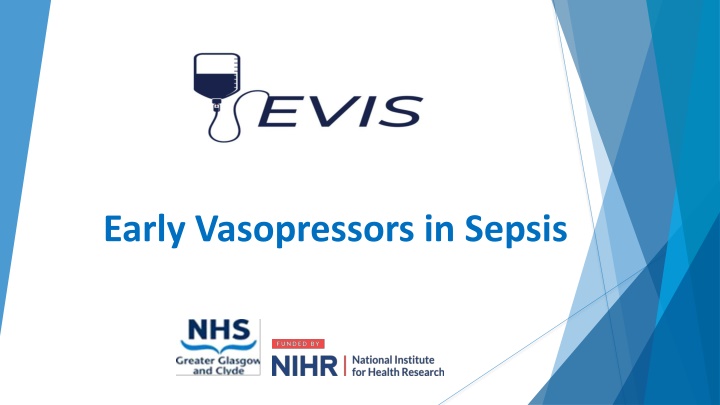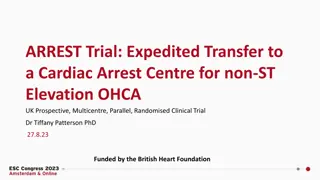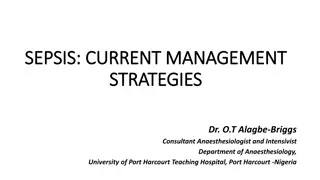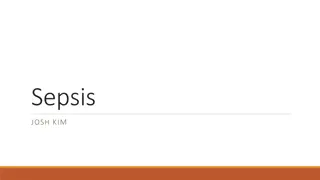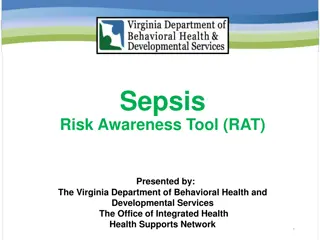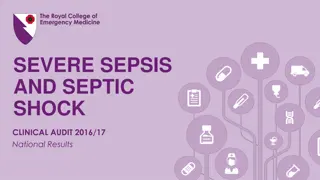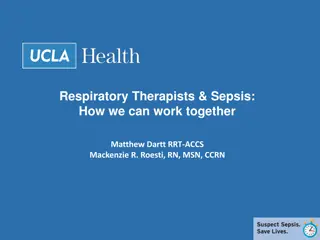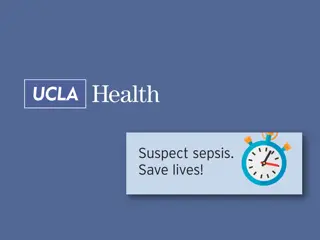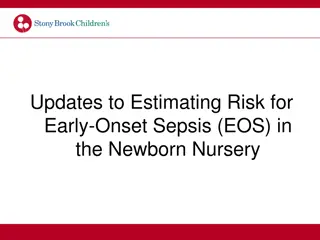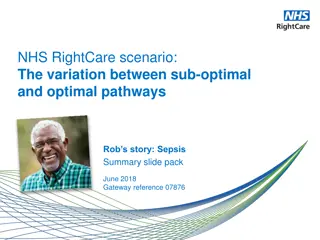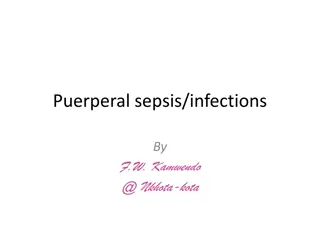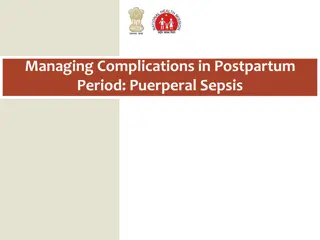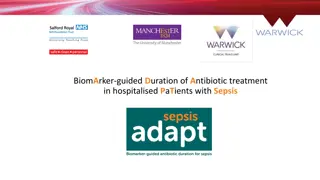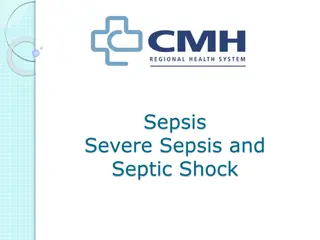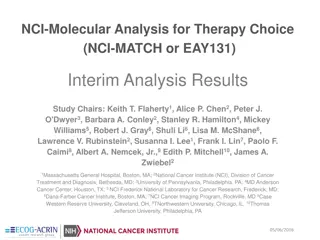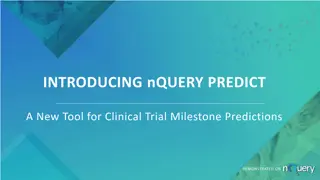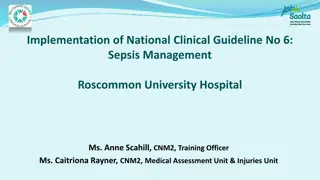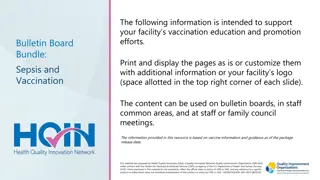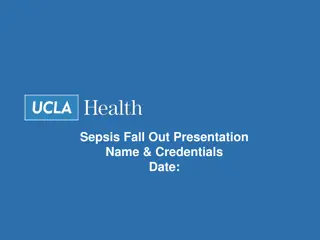Early Vasopressors in Sepsis Clinical Trial: Improving Patient Outcomes
This UK-wide clinical trial aims to assess the effectiveness of early peripheral norepinephrine infusion in adult patients with septic shock. The study will compare the impact on mortality and other outcomes of targeting a mean arterial pressure (MAP) above 65mmHg within the first 48 hours of admission. Inclusion criteria include age over 18, suspected or proven infection, and specific hemodynamic parameters. Exclusion criteria involve certain medical conditions and prior trial participation. The trial will involve 3286 patients across 60 sites in the UK, with a treatment duration of 48 hours and follow-up period of 90 days.
Download Presentation

Please find below an Image/Link to download the presentation.
The content on the website is provided AS IS for your information and personal use only. It may not be sold, licensed, or shared on other websites without obtaining consent from the author.If you encounter any issues during the download, it is possible that the publisher has removed the file from their server.
You are allowed to download the files provided on this website for personal or commercial use, subject to the condition that they are used lawfully. All files are the property of their respective owners.
The content on the website is provided AS IS for your information and personal use only. It may not be sold, licensed, or shared on other websites without obtaining consent from the author.
E N D
Presentation Transcript
Key Study Contacts Chief Investigator: Dr Alasdair Corfield Alasdair.corfield@ggc.scot.nhs.uk Project Manager: Hannah Greenwood hannah.greenwood@ggc.scot.nhs.uk Monitoring: Emma Moody emma.moody@ggc.scot.nhs.uk Data Centre: Tony Wackett tony.wackett@ed.ac.uk
Study Summary Aim: To deliver a UK wide pragmatic multicentre randomised controlled trial to determine definitively whether early PVI target to MAP >65mmHg is clinically and cost effective for adult patients with septic shock compared with usual current care. Sample Size: 3286 patients across 60 UK sites Trial Period: 45 months Treatment duration: 48 hours Follow up duration: 90 days Control arm: Intravenous crystalloid administered as 250-1000ml boluses up to 30ml/kg in the first 3 hours after randomisation and thereafter according to national guidelines for remaining 45 hours to target MAP >65mmHg Intervention arm: Peripheral norepinephrine infusion during initial 48 hour study period to target MAP >65mmHg
Objectives Primary Objective To determine whether early PVI (within 12 hours of admission) targeted to MAP >65 improves clinical effectiveness (30 day mortality) in hospitalised adult patients with septic shock compared with usual care in the first 48 hours. Secondary Objective To assess the effects of PVI compared to usual care on a clinical, patient centred, health service and economic outcomes in the acute hospital setting and during the six months after participant randomisation. These will include protocol adherence and safety outcomes.
Inclusion Criteria Age > 18 years Clinically suspected or proven infection resulting in a principal reason for acute illness SBP <90mmHg or MAP <65mmHg and measured serum lactate of >2mmol/L at the time of eligibility assessment Hospital presentation within last 12 hours
Exclusion Criteria >1500ml of intravenous fluid prior to screening Clinically judged to require immediate surgery (within one hour of eligibility assessment) Immediate (<1 hour) requirement for central venous access Chronic renal replacement therapy Known allergy/adverse reaction to norepinephrine Palliation/end of life care (explicit decision by patient/family/carer in conjunction relief is not appropriate) Previous recruitment in the trial Patients with permanent incapacity Pregnancy. Women of child bearing potential (WoCBP) must have a negative urine or serum pregnancy test completed as part of screening requirements. WoCBP are defined as fertile following menarche until becoming post-menopausal unless permanently sterile. Permanent sterilisation methods include hysterectomy, bilateral salpingectomy and bilateral oophorectomy. A post menopausal state is defined as no menses for 12 months without an alternative medical cause.
EVIS treatment arms Participants in EVIS will be randomised to either: Usual Care: peripheral intravenous fluid using a balanced crystalloid i.e. compound sodium lactate (also known as Ringers Lactate or Hartmanns solution) OR Plasma-lyte 148 Intervention arm/Early peripheral vasopressor: peripheral intravenous norepinephrine All other care as per current UK/local sepsis guidance Treatment duration: Up to 48 hours from time of randomisation Prescribing of EVIS IMPs: Restricted to those delegated this responsibility on site delegation log. When prescribing ensure it is clear that patient is taking part in EVIS clinical trial Study supplies: Use hospital own stock
Detailed information and support for EVIS study Current protocol EVIS IMP manual for Sites More detailed training module available including one on EVIS Study Medicines Clinical Information Sheets Template IMP record sheets IMP labels (optional) Available on EVIS study website www.evis.scot.nhs.uk or scan QRS code
